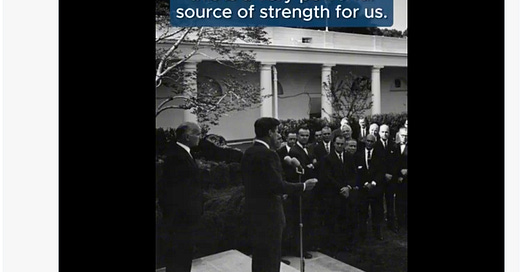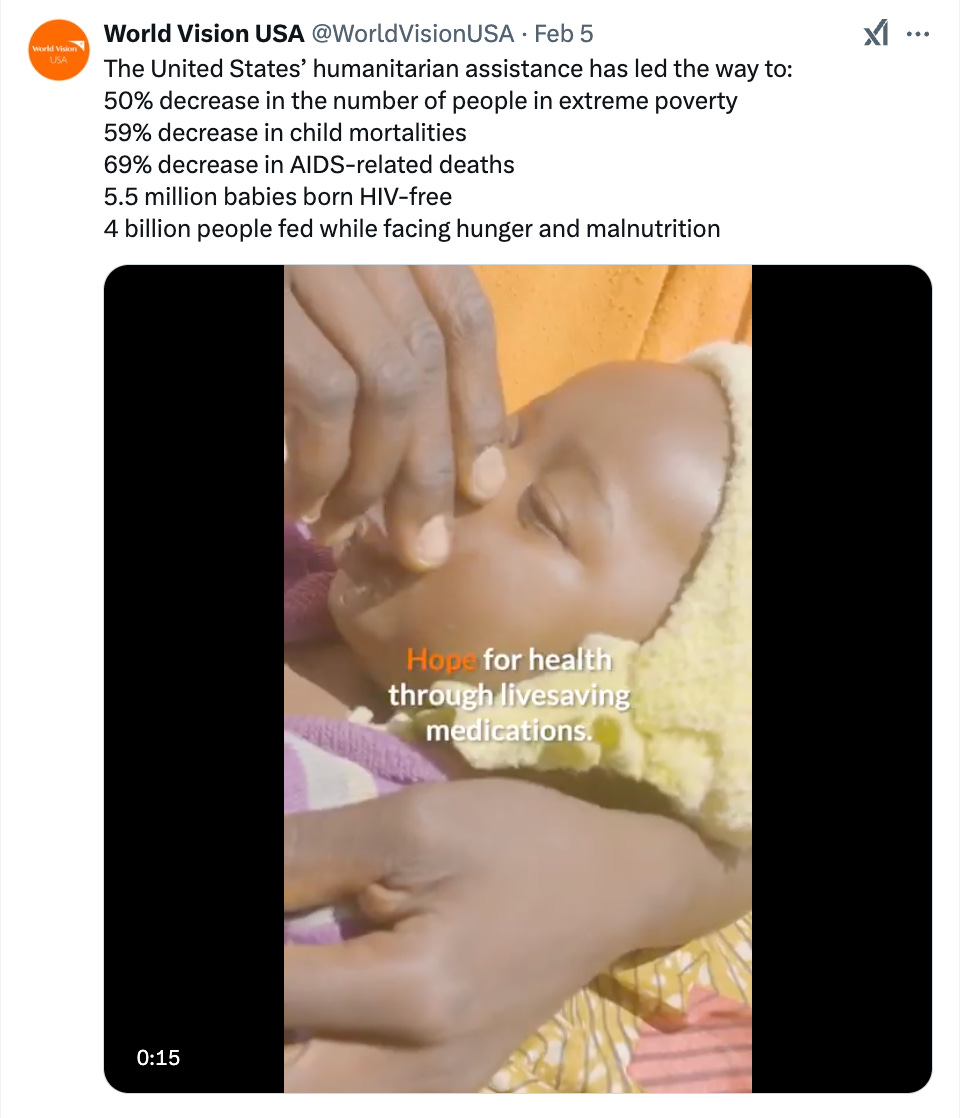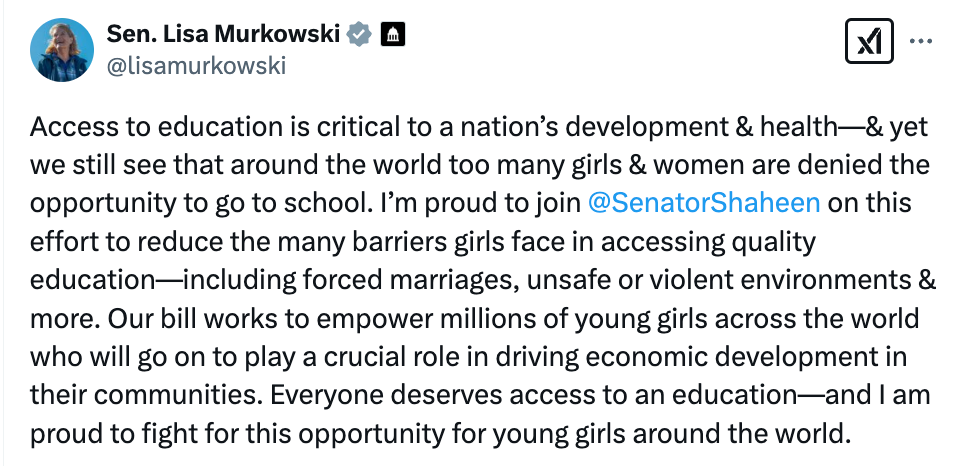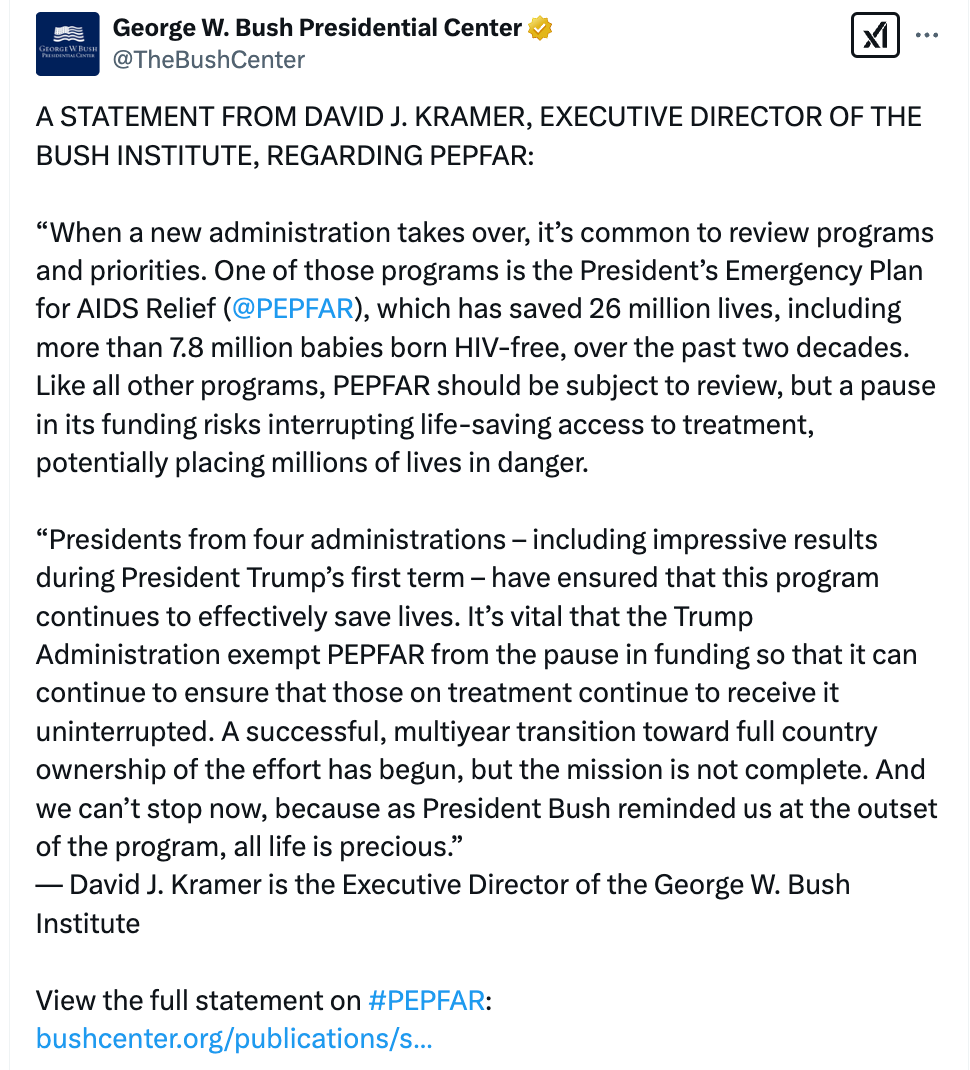When policymakers make budget cuts or suspend foreign aid, children often pay the price. In the first days of the Trump Administration, the President signed an executive order (EO) that sought to suspend U.S. international assistance for three months. Trump urged Elon Musk in his unelected role as appointed head of the Department of Government Efficiency (DOGE) to set his sights on the U.S. Agency for International Development (USAID). Musk has attempted to completely shut down USAID, which was established in 1961 after an act of Congress and with the support of President John F. Kennedy.
After 64 years, Musk sought to destroy USAID over a weekend by, in his words, putting it into the “wood chipper.”
While Musk, the world’s richest man, may think it is funny or something to joke about, the consequence is that millions of the world’s poorest children face the loss of life-saving assistance from the U.S. government. The juxtaposition is disturbing and tragic.
Trump’s EO and Musk’s action have led to an indefinite suspension of international development aid, effectively halting programs that provide food, clean water, vaccines, education, and health care to children living in extreme poverty. As my colleagues Leila Nimatallah and Chris Becker at First Focus on Children have powerfully detailed, this decision could mean the difference between life and death for millions of children.
What Just Happened?
In a recent post, Leila Nimatallah, Vice President of Advocacy & Mobilization at First Focus on Children, lays out the gravity of the situation:
The U.S. is the biggest donor worldwide to programs that save and protect the lives of the poorest children on the planet — programs that provide critical health, food and nutrition interventions.
Nimatallah explains how this delay and destruction of USAID can harm the world’s most vulnerable children:
Because children’s bodies are still developing, they are unable to withstand bouts of extreme heat, dirty water, or exposure to infection the way adults can. Because they are still growing, children are more fragile, and they die faster without the proper interventions. Absent treatment, for example, a third of HIV-positive infants will die before they turn 1 and 50% will fail to make it to their second birthday.
Likewise, a young child sick with untreated diarrheal disease can pass away within days and an infant with a respiratory infection could die in mere hours lacking intervention. Worldwide, the poorest children are twice as likely to die in childhood than their wealthier peers. As the biggest donor worldwide to poverty-focused development assistance, the U.S. decision to suddenly withhold previously committed resources could prove devastating.
The United States has long played a critical role as the world’s largest donor to international development programs, funding efforts that provide essential support to children in crisis.
World Vision explains in this Twitter post…
The sudden withdrawal of this funding, without warning or a transition plan, has created chaos in the global humanitarian system and put countless young lives in immediate danger.
The Cost: $4 Billion — and Potentially Millions of Children's Lives
In an analysis of the potential budgetary impact, Chris Becker, Vice President of Budget Policy and Data Analytics at First Focus on Children, details just how much is at stake:
$860.1 million for maternal and child health
$665.7 million for basic education and clean water
$361.7 million to combat malaria
Hundreds of millions more for food security, vaccines, and emergency relief
More than $4 billion in USAID programming that directly benefits children has been put on hold. These funds pay for the health care workers who treat preventable diseases, vaccines that protect newborns, the clean water that prevents deadly infections, and the schools that give children hope for a better future.
Cutting or freezing this assistance isn’t just cruel—it’s catastrophic.
A Death Sentence for the Most Vulnerable
For children living in extreme poverty, aid isn't a luxury — it’s a lifeline. They cannot wait or afford delays. Their developing bodies are uniquely vulnerable to malnutrition, disease, and lack of clean water. As First Focus on Children’s analysis points out:
Without treatment, one-third of HIV-positive infants will die before their first birthday, and half will not survive past their second.
Diarrheal diseases and respiratory infections — both preventable with clean water and medicine — can kill a child in a matter of hours.
The U.S. has spent decades reducing child mortality from preventable causes. This decision could undo that progress overnight.
I wish they were exaggerating. However, it’s a reality backed by decades of public health data. When funding stops, children suffer and even die.
Beyond the Human Toll: Destabilizing the World
The repercussions extend beyond the children directly affected. Cutting aid weakens global stability, increases conflict, and makes future humanitarian crises inevitable. While foreign aid makes up less than 1% of the federal budget, it has an outsized impact on international stability, goodwill, and even trade.
The children’s share is just 0.09% of the federal budget. That is less than one-tenth of one cent of every dollar.
Yet today, the entire global development and humanitarian sector is in disarray. The Administration’s decision to dismantle USAID has led to mass firings, sudden program terminations, and a halt to critical projects that were already in progress.
While limited waivers have been granted by Secretary of State Marco Rubio for so-called “lifesaving” programs, the lack of clear direction has rendered these exceptions largely ineffective. Further, the funding to implement these waived programs has not been forthcoming, and there is virtually no one left at USAID to administer them.
Secretary Rubio and Sen. Lindsey Graham (R-SC) have long argued about the importance of USAID to the world and to the U.S.’s interests.
USAID funding has been particularly critical to promote education and safety for children, particularly for women and girls. In the words of Sen. Lisa Murkowski (R-AK):
Access to education is critical to a nation’s development and health – and yet we still see that around the world too many girls and women are denied the opportunity to go to school.
Sen. Murkowski points out that barriers include “forced marriages, unsafe or violent environments and more.”
Sen. Jerry Moran (R-KS) highlighted the importance of USAID’s role in providing food aid in a 2017 Op-Ed when Trump proposed cuts to food assistance in his first administration:
Regardless of faith, ethnicity or class, each of us is taught at a young age that it is our duty to help those in need. Americans take that moral responsibility to heart… [A]s a country, America leads the world in providing food for millions of people in need of assistance.
In addition to making the moral case, Moran also highlighted the interests of our nation in providing foreign aid (what some call “soft power”):
When governments cannot feed their own people, chaos and violence are sure to follow… While our country’s collective moral convictions make fighting hunger the right thing to do, the benefits we receive as a nation from reducing food insecurity also make it the smart thing to do.
President Ronald Reagan got it, as Moran explains:
President Ronald Reagan recognized the power of food in shaping foreign policy. In 1983, at a signing of a World Food Day proclamation, Reagan chided the Soviet Union for failing to provide humanitarian relief to those in need, and offering a direct challenge to the Kremlin to explain why the Soviet Union only provided weapons but not food assistance to the underdeveloped world.
As a nation, we should not regress to where our foreign policy is exclusively about giving out weapons of war rather than assistance.
In addition to the importance of education, food assistance, and other basic health and sanitary assistance, Sen. John Cornyn (R-TX) also pointed out the importance of PEPFAR in preventing babies from being born with HIV. Cornyn sought and received a commitment from Robert F. Kennedy, Jr. during his Senate Finance Committee confirmation hearing to become Secretary of Health and Human Services to “absolutely” support PEPFAR.
Here is the video (PEPFAR question and answer begins at the 3:51 mark).
In addition, here is a statement from the George W. Bush Presidential Center on the importance of PEPFAR, which was a crowning achievement of the Bush Administration as it has saved tens of millions of lives worldwide.
The U.N. AIDS agency estimates that by 2029, there could be 8.7 million people newly infected with HIV, a tenfold jump in AIDS-related deaths — to 6.3 million — and an additional 3.4 million children made orphans. In South Africa alone, a shutdown of PEPFAR aid is expected to result in the birth of 230 H.I.V.-positive babies per day.
Restoring Aid: A Moral and Strategic Imperative
Consequently, the suspension of life-saving assistance is not just a policy decision — it is a moral failure. The United States has long played a leadership role in global humanitarian efforts. That leadership is now in jeopardy, and the cost will be paid in children’s lives. Congress must step in and immediately reinstate USAID funding for children’s health, nutrition, and education programs.
Children's lives hang in the balance. We cannot stand by and let them become collateral damage in a political decision that lacks both humanity and reason.
If you would like to help ensure that children and their needs, concerns, and best interests are protected and not ignored by policymakers, please consider joining us as an “Ambassador for Children” or becoming a paid subscriber to help us continue our work on behalf of children.













